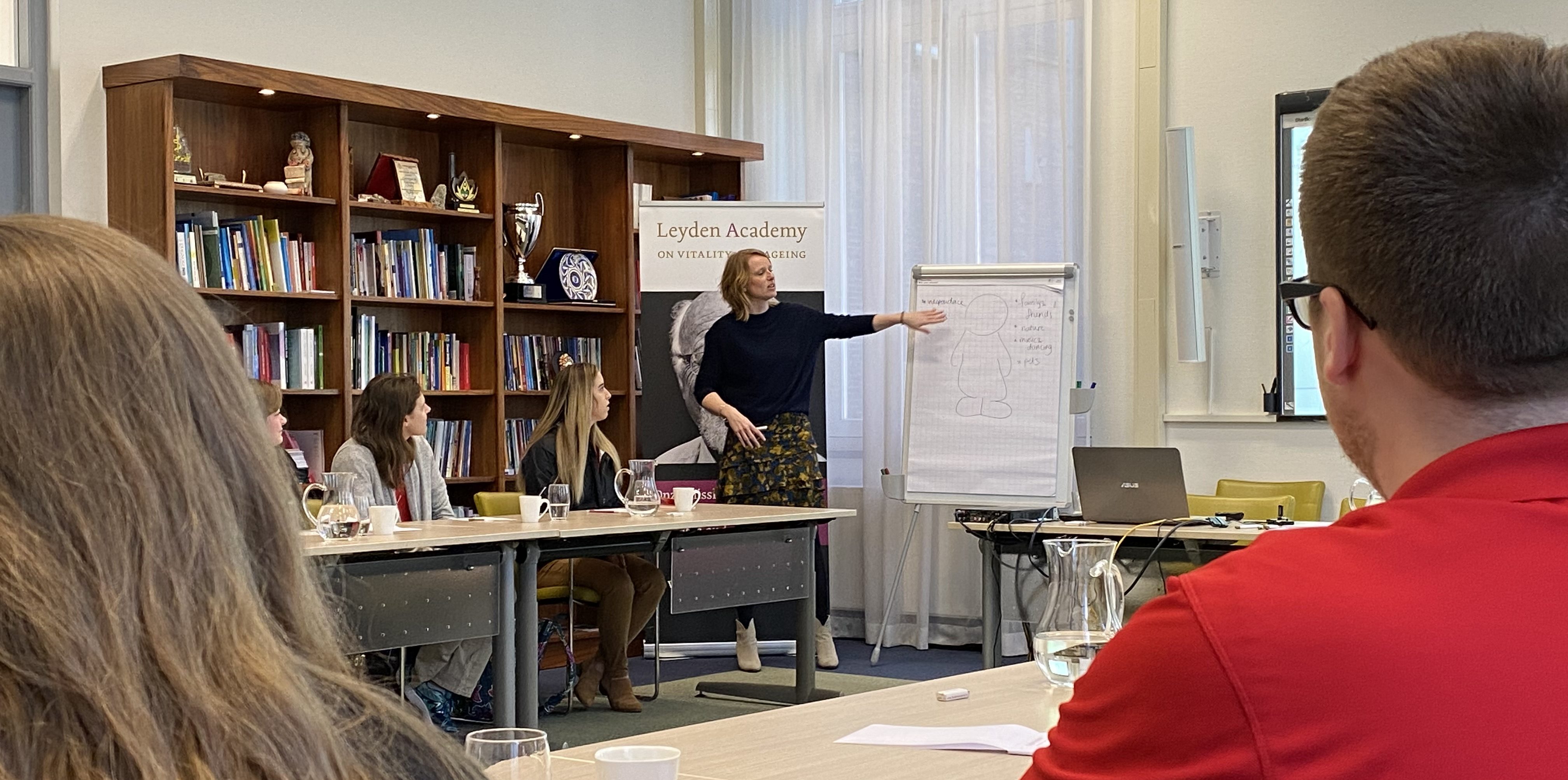Today, we welcomed sixteen nursing students and two professors from Saginaw Valley State University in Michigan. The group is travelling in the Netherlands this week to explore our health care system and compare it to the system in the U.S., incorporating both the theoretical and fieldwork components. While in The Netherlands, the students will be visiting hospitals, nursing homes, public health agencies, and knowledge institutes such as Leyden Academy on Vitality and Ageing.
Senior researcher Josanne Huijg first introduced the students to the work of Leyden Academy and discussed the Enjoying life project in particular, an experiment conducted by our institute to make the well-being of residents of nursing homes the focal point of providing and evaluating care. What are the implications of this approach for older people, their significant others, and nursing home staff? And how can the quality of this ‘narrative care’ be justified to external parties?
The students were very interested in this person-centred approach, and had many questions. They were also challenged to think about and write down three things that are important in their own lives. Almost everyone mentioned their family and friends. According to Josanne, research confirms that relationships are most important for people’s well-being. Other examples written down by the students were nature, faith, music, my dogs, and “a cup of coffee in the morning”.
The next step was to exchange your card with your neighbor and delete one random thing. How does this feel? “That’s sad,” one of the students said. We tried to convey how it feels when you move into a nursing home, and you have to leave precious things behind: like living with your spouse, your pet, or certain hobbies or routines you cherish. This is the main objective of our research in long-term care: helping residents of nursing homes to live their lives the way they want to, and to be the person they want to be.
Afterwards, postgraduate researcher Paul van de Vijver presented Leyden Academy’s vision and research on ageing in vitality, and helped the students to experience feeling older by applying the ‘old age suit’.



